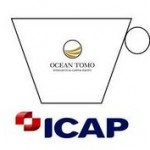I apologize for the break in action. I have been on the road almost continuously since attending last week’s ICAP/Ocean Tomo “IP Markets 2009″ Summer Auction and Conference in Chicago. Thanks to those who have messaged or emailed in search of the “full report” I promised before the event, I have not been derailed from my mission and will hereby “give the people what they want.”
We all know the results of the auction. For the second straight auction, the numbers were disappointing. As I expected, most publications that have covered the event have harped on the negative, based solely on the dismal statistics. “Pretty disastrous,” is what Joff Wild resorted to in comparing this go-round with San Francisco’s March auction. “ICAP must be a little disappointed in the performance of their new acquisition,” said Terry Ludlow at Chipworks. Yet, besides the value supposedly lost in the auction platform, lots of value was elicited from the event. In fact, the most valuable thing to the IP transactions market: collaborative discussion in furtherance of the market’s mechanisms.
I sat through Track A of the conference, titled “The Future of the IP Marketplace: Auctions, Private Sale, Web, or Other.” This experiment was a “No Attribution” panel including some of the most premier intellectual property market players in the world - on the buy side, sell side, and information side - created to discuss collaborative efforts to move the market out of the grey and into the light. Because it was a “No Attribution” panel, I will respect the anonymity of the participants - in large part because many of them were willing to speak out of tune, in their own words, instead of in their respective business’ words, shedding light on topics that desperately needed it.
Here is a bullet-point summary of some of the most important, or interesting, topics discussed. These are the most relevant issues facing the IP marketplace today:
- “IP is a function of our legal system.” Sometimes we forget this very innate fact. Therefore, the IP marketplace is at the whim of the law makers. We must facilitate an advantageous legal system for this purpose. The quest for standardization should start and end here.
- IP-backed Securities - the valuation of other securities finds its foundation in the rating system, i.e. AAA-rated asset-backed securities. We may need a similar rating system for IP-backed securities (any IP investment) that can be simplified to letter assignments (A, B, C, D). This will not give us the exact valuations we need, but it is a start to dividing bad IP investments from good ones.
- Government insurance for IP-based securities - the government has continuously insured other securities like asset-backed securities (see TALF, TARP, etc.). A lobbying effort for the same with IP could be beneficial.
- “Pitch Book” - Numerous panel members agreed that a “pitch book”, or a marketing package from a potential IP seller to a buyer, must include DETAILS regarding (1) the technical strength of the patent, i.e., is it used?, and (2) the legal strength of the patent, i.e., is it valid and enforceable? A buyer will not have the time to make these determinations on their own. The proof needs to be handed to them. A “pitch book” needs to be professional and organized. The more detailed the better. Buyers are visual - charts help. Major buyers of IP asserted that they are only buying 1 out of every 20 assets shown to them, while that figure used to be close to 1 out of every 3 a year ago. Therefore, the stakes have been raised, and, as we expected would occur, selective buying has begun.
- “Licensing reduces market size.” This is important. The licensees you choose may cut off other licensing opportunities, based on the industry and competitors involved. Choose wisely. Furthermore, a few licenses can successfully shrink the potential market for sale.
- “Patents will devalue by 50%”. This statement was made and seconded. Scary, but is the decrease just as speculative as the previous rise in value? Some have blamed attorneys for this arbitrary rise and imminent fall, but lawyers do what their clients want them to do - they don’t make the market, they act according to it.
- Germany is the new haven for the IP transaction market, especially for IP-based investing and securitization. This is the first I had heard this, but I plan to look into it.
- STANDARDS IN IP VALUATION MAY BE THE PRODUCT OF COLLABORATIVE EFFORTS AS SIMPLE AS AN AGREEMENT TO DISCLOSE BASIC INFORMATION - I capitalize this issue because, although it took a while to get to it, it is and always has been (in my opinion) the most crucial issue facing the IP market. Valuation is currently the price of risk - 100% context specific. “The market won’t develop until we have price discovery.” And there it is. Somebody said it. Point blank. The problem is evidently a Prisoner’s Dilemma - everybody wants the information, but nobody wants to disclose their empirical evidence. Two very interesting suggestions were brought to the table:
- All market participants should agree to execute an inter-industry agreement to disclose minimal transaction information, including price. Such basic information would be divided into two topics: Property, Price. Parties would be left out. To make sure the information is untraceable to the parties to the transaction, the property information could be generalized to a certain “industry” or “category”. (Pharma, tech, nano, etc.) The publication of this information could blend the respective disclosures even more by only providing averages for each category. I like this idea a lot. It is at least a step in the right direction. (whole panel committed to a day to discuss issue and come up with such an agreement, if agreeable)
- The government can, and might, require transparency. If certain transactional information remains undiscoverable, there is nothing to stop the government from requiring disclosure, much like it does in the corporate world for other asset sales (SEC) and in Acts such as Sarbanes-Oxley. The real estate market is regulated as such, why couldn’t the IP market? The Patent office already requires assignments to be filed - there is nothing stopping the office from requiring a price on that filing. Of course, most of the panel members scoffed at the idea, or shook in their boots. Obviously, clients don’t want disclosure, and the market players want their clients to be happy. But while this might be the strongest impediment to option #1 above, if the government demands minimal disclosure, this might be the most efficient way to prove price discovery, and therefore valuation standards, in the IP marketplace.
- There may be an interdisciplinary IP Management graduate degree program in the works at UC Berkely. This would be a collaborative effort between the law school, the business school, and the engineering school - to create IP Management Executives. How cool is that? See what others (Tangible-IP) have to say about this endeavor.

 Ian McClure is a former corporate & securities and intellectual property law attorney with
Ian McClure is a former corporate & securities and intellectual property law attorney with  Trevor M. Blum is a former Associate in the Chicago-based, valuation practice group of Ocean Tomo, LLC., an intellectual property (IP) consultancy. Additionally, he provided instrumental research support to Intellectual Property Exchange International, Inc., an IP exchange start-up. Trevor holds a B.S. from Indiana University and is currently an MBA candidate at the University of Cambridge, focusing on international business and finance. His interests also include entrepreneurship, economics, and informational visualization. He enjoys running and cycling in his free time. Trevor seeks to bring a transnational business perspective to the blog.
Trevor M. Blum is a former Associate in the Chicago-based, valuation practice group of Ocean Tomo, LLC., an intellectual property (IP) consultancy. Additionally, he provided instrumental research support to Intellectual Property Exchange International, Inc., an IP exchange start-up. Trevor holds a B.S. from Indiana University and is currently an MBA candidate at the University of Cambridge, focusing on international business and finance. His interests also include entrepreneurship, economics, and informational visualization. He enjoys running and cycling in his free time. Trevor seeks to bring a transnational business perspective to the blog. 
One Comment, Comment or Ping
Reply to “The Future of IP: Notes from the ICAP Ocean Tomo Summer 2009 Conference”